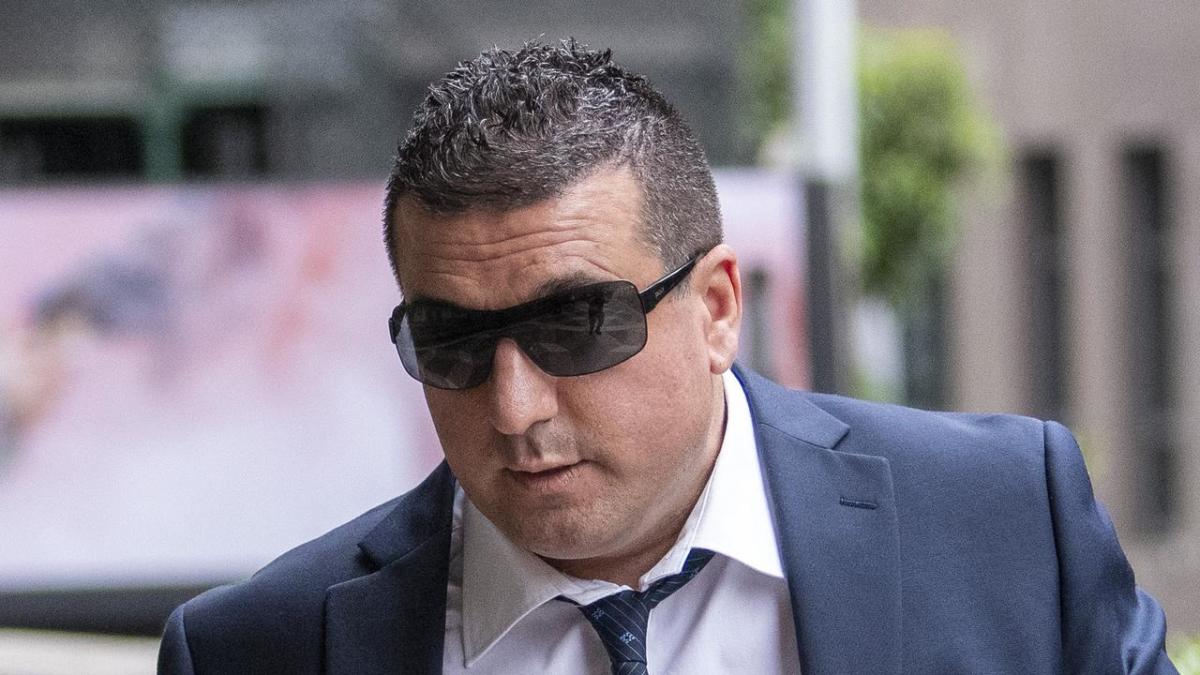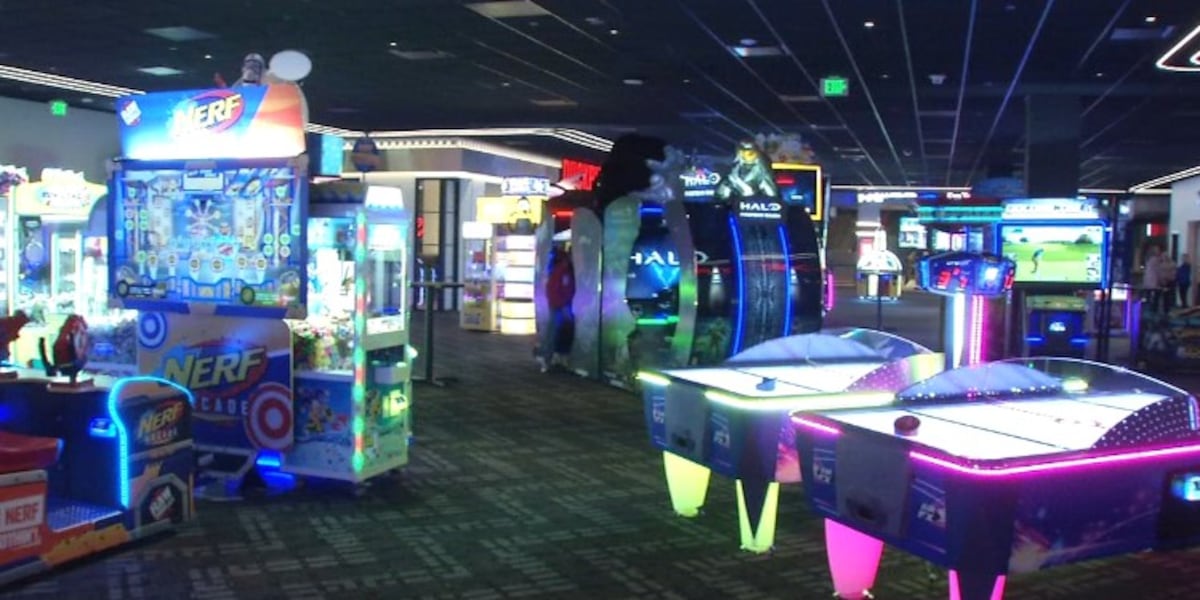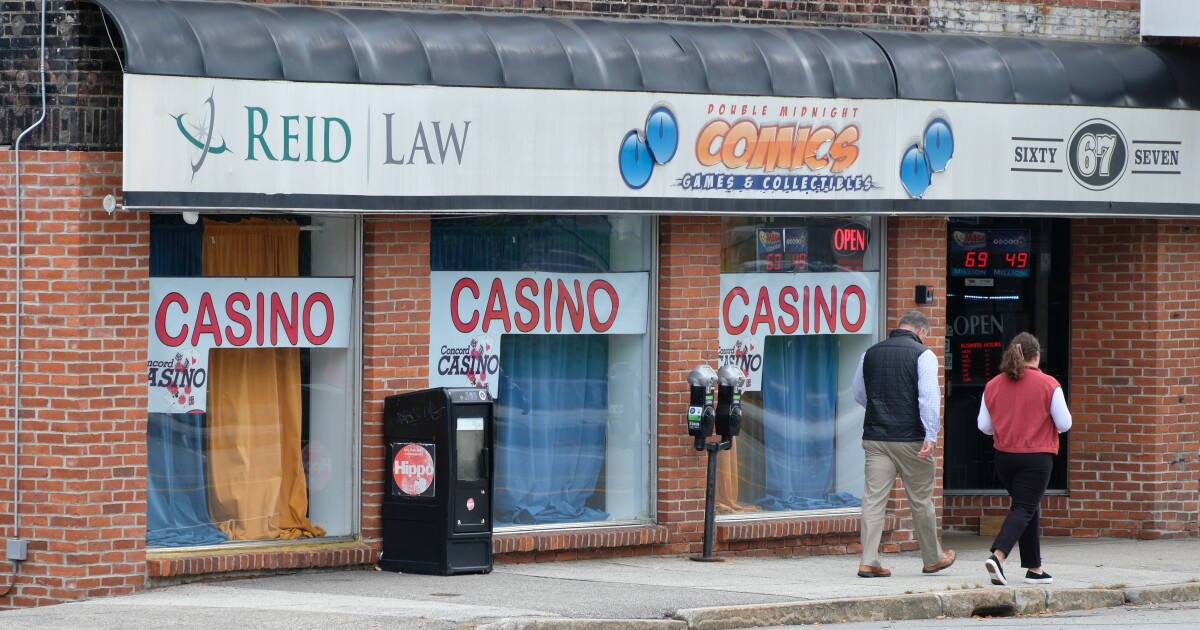The state landed a significant win in its 18-month pandemic fraud case against casino owner Andy Sanborn Tuesday. A judge said the Lottery Commission can revoke Sanborn’s gaming license for two years.
It’s a major blow for Sanborn, who has been racing against the clock to sell Concord Casino since the state ordered it shuttered and sold in January over the fraud allegations. Sanborn’s greatest asset is not the casino business, which he can still sell, but its access to perhaps the last available historic horse racing licenses in the state.
Without access to that license, the business is virtually worthless.
It was unclear Tuesday whether Sanborn’s buyer will move forward, given the latest licensing order and the state’s refusal this month to approve the pending sale. According to documents in the licensing case, the state’s issue is not with the potential buyer but the structure of the deal.
In his order, administrative law Judge Gregory Albert said either party can ask for a rehearing before the Lottery Commission or pursue a suspension of the order in court.
In the order suspending the casino license, Albert said that there may be reason to give Sanborn more time to sell but that he no longer has the authority to do so. He noted that charities and taxpayers, which share in casino revenue, will lose out if the casino does not reopen under a new buyer. He also noted that Sanborn’s attorneys have raised objections to the state’s process for vetting the pending sale.
“(Sanborn) correctly argues, as (I) held, that the equities in this matter strongly favor an extension given the positive tax revenue and support of charitable organizations,” Albert wrote. “(I have) not changed his mind on that issue.” Albert added, “whether that suitability determination was properly made is a question for the courts—not (me.)”
Late Tuesday, Albert issued a second order clarifying the state could move forward with revocation upon receiving the order.
Sanborn’s lawyers, Zachary Hafer and Adam Katz, said Tuesday they are prepared to challenge the order — and the state’s vetting of the deal — in court.
“We agree with Judge Albert that the public interest overwhelmingly favors a sale. We remain committed to the sale and look forward to closing,” Hafer said in an email.
Hafer said Sanborn’s buyer clarified two minor items that the state raised “some time” ago. He declined to identify those issues but said they were related to the state’s “misreading” the terms of the sale.
“The Buyer has now provided the state a clear path to closing the transaction, which is in the best interest of the community, the taxpayers, and the charities,” Hafer said. He added, “it remains unclear why the state is standing in the way of the public interest. We hope the state will do the right thing voluntarily, but we are prepared to pursue our rights in court.”
The Attorney General’s Office and Lottery Commission did not respond to a request for comment. It was unclear Tuesday when the state will revoke Sanborn’s license and whether the suspension period will include the 11 months the casino has been ordered closed.
The New Hampshire Lottery Commission and Attorney General’s Office first raised concerns about Sanborn’s finances in the spring of 2023 during a standard licensing review.
Several months later, in August 2023, Attorney General John Formella announced he was investigating Sanborn and his wife, Rep. Laurie Sanborn, for alleged misuse of nearly $844,000 in federal pandemic loans. Nearly $182,000 of that was used to buy two Porsches and a Ferrari, Formella said.
Formella also announced in August that he and the New Hampshire Lottery Commision were moving to revoke Sanborn’s charitable gaming license indefinitely.
The state has not charged Sanborn in connection with that investigation, though it arrested him in October for alleged fraudulent use of other federal pandemic aid given to small businesses. The Attorney General’s Office alleges Sanborn misrepresented his casino’s gross receipts by nearly $1 million in order to increase his grant from the “Main Street Relief Fund” by nearly $188,474.
Sanborn’s lawyers mounted a defense that has brought Sanborn considerable success in the last 13 months.
They persuaded a judge in December against revoking Sanborn’s license indefinitely in exchange for a less severe penalty. Sanborn’s license would remain viable if he sold his casino within six months unless he had a pending sale, which would extend the deadline by three months.
But Sanborn’s negotiations with potential buyers proved difficult due to their concerns about inheriting Sanborn’s legal problems if he or the casino company were convicted in the fraud investigation. A felony conviction could lead to a 10-year license loss. The Attorney General’s Office declined Sanborn’s request to assure buyers they would not be held liable for future convictions.
Sanborn’s lawyers succeeded in extending the sale deadline several times and in September, Sanborn announced he had signed a 75-page purchase and sale agreement with a buyer. The buyer would sign, Sanborn said, once the Lottery Commission and Attorney General’s Office cleared him for a license.
Sanborn’s lawyers asked Albert, the judge overseeing the licensing case, to give Sanborn until 15 days after that suitability determination to close. Albert agreed.
Those 15 business days expired on Nov. 21. Given that, Albert said in his order that any further legal arguments or extension requests from Sanborn would be moot in the case before him.





